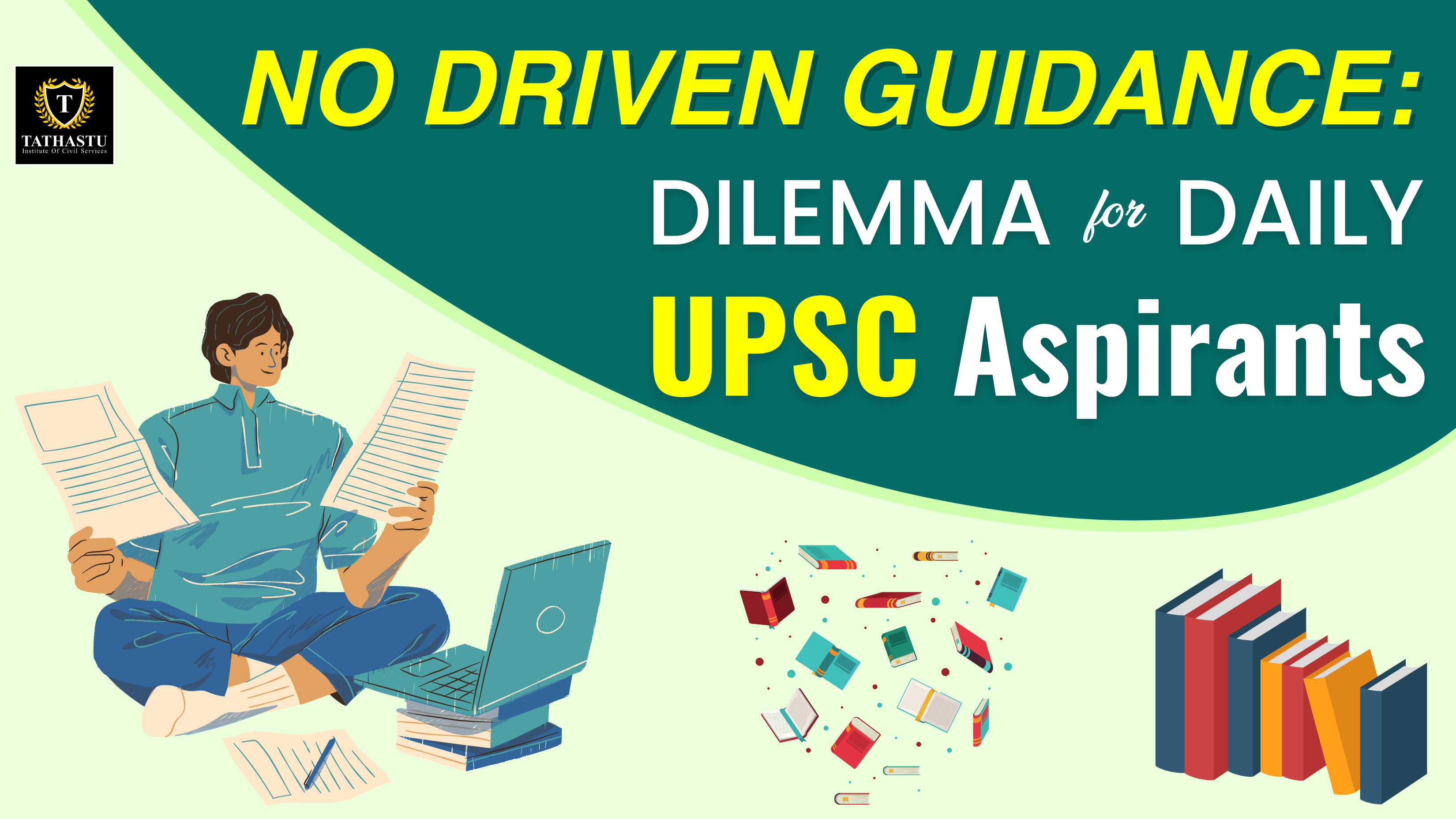New Evening & Weekend Batches - Learn More
Click Here
For many of us, the UPSC Civil Services Exam (CSE) is the ultimate goal, symbolizing our aspirations and dedication. It represents not just a career path, but also a gateway to a prestigious career in bureaucracy, a chance to serve the nation, enact meaningful change, and a symbol of immense social standing. However, behind the perks of this renowned test, we often face a difficult problem: we don't always have driven guidance.
Imagine a student with big eyes and a strong will diving headfirst into the ocean of UPSC syllabus, past papers, and study tools but he or she finds themselves directionless with the vast volume of information and the complexity of the exam! Confronted with this confusing situation, we feel quite lost. It feels like we are heading in any direction without a compass. Then, we look for advice, support, and mentorship that could have shaped our route, especially as a beginner or average aspirant. On this journey, we face numerous hurdles such as:
Being an aspirant, it's crucial to recognize the importance of driven guidance in the preparation journey. A guide or mentor is like a potter, who will shape you with all required ingredients required to be a bureaucrat, no matter if you are a brilliant aspirant like fertile soil or just a beginner like barren soil.
Guidance is more than just providing study materials or conducting mock tests. It's about mentorship, support, and motivation. They serve as a beacon of inspiration, reminding aspirants of their potential and guiding them through the ups and downs of the journey. You can take guidance in many modes. Here are some ideas for aspirants seeking guidance:
Guidance provides a structured learning environment. Experienced faculty can guide you through the syllabus, ensure efficient time management, and offer valuable insights into exam trends. Regular assessments and mock tests hone your answer writing skills and exam temperament. But don’t underestimate that a predefined approach might not suit your learning style.
On the other side, some aspirants choose a self-study approach, believing it fosters independence and a deeper understanding of the material. Here are some effective strategies if you are willing for self-study approach:
Self-directed learning empowers you to take complete ownership of your UPSC journey. You craft your study schedule, delve into resources that pique your interest, and set your own pace. This fosters a deep understanding of the material and hones your time management skills. But, it demands strong discipline, research skills, and the ability to navigate the vast ocean of information available all alone. Feeling overwhelmed or unsure of your approach can be a hurdle. So, Highly disciplined individuals with strong research skills and a natural aptitude for the exam format may find them particularly useful.
While these strategies can be effective for some, the key to success lies in understanding your own strengths and weaknesses, and then - The Choice is Yours!
There's no single "best" path. Evaluate your strengths and weaknesses. Are you a self-motivated learner who thrives on independence? Or do you prefer a structured approach with expert guidance? Consider your budget and learning style as well. Ultimately, the most effective approach is the one that empowers you to navigate the complexities of the UPSC with focus and determination. Remember, the absence of a pre-defined path doesn't mean there isn't one for you. Embrace the unique advantages of your chosen approach, and forge your own path to UPSC success.
You can also choose a middle path by adopting a more balanced approach, which is a combination of self-study and guidance. The UPSC journey is yours to conquer. Embrace the guidance available, but don't become solely dependent on it. Fuel your preparation with self-study, independent research, and a relentless drive to learn. This balanced approach will empower you to not only excel in the exam but also cultivate the lifelong learning mindset that's essential for a successful career in civil service.
So, chart your course, leverage the support, and chase your UPSC dream with unwavering determination!

Learning is the process of acquiring new or modifying existing knowledge, behaviours, skills, values or preferences.